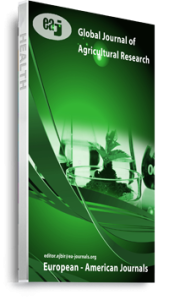This study examined eleven improved cassava varieties that could be recommended to farmers for higher productivity in order to meet the high demand for cassava produce in the sub region. The eleven cassava varieties include TMS 01/1371, TMS 96/1632, TMS 98/0510, TME 419, TMS 98/0581, TMS 01/1368, TMS 07/0593, TMS 98 / 0505, TMS 30572, TMS 92/0326 and TMS 95/0289. The field performance evaluated include: plant height, leaf number, number branched, fresh tuber yield and dry weight. Immediately after harvest, the tubers were analyzed for chemical composition such as hydrogen cyanide, percentage moisture content, fibre and starch for each of the varieties. Results of the study showed significant (P<0.05) variation on the performances of the various improve cassava varieties studied. The top seven high yielding varieties among the studied varieties intense of fresh tuber yield which is a product of high growth performance as revealed by the results of this experiment include TMS 01/1371 > TMS 01/1368 > TME 419 > TMS 98/0505 > TMS 98/0581 > TMS 30572 and TMS 92/0326 in decreasing order. Similarly, low cyanide content and early high dry matter content such as starch and fibre evaluation of the studied varieties significantly (P<0.05) revealed TME 419 as the best performed followed by TMS 98/0505 > TMS 30572 > TMS 01/1368 > TMS 01/1371 and TMS 07/0593 in decreasing order. These varieties could be recommended for rapid stem multiplication and distribution to farmers for cultivation and consumption in Rivers State and Nigeria at large to increase the quantity of cassava products. With these selected improved varieties, adequate agronomic practices and processing, cassava yield and product quality could be bettered with less land use and labor.
Keywords: Chemical composition., Growth Performance, Varieties, Yield, cassava

